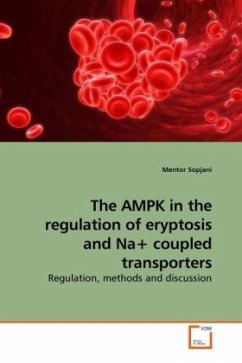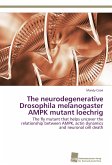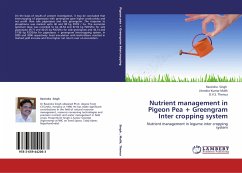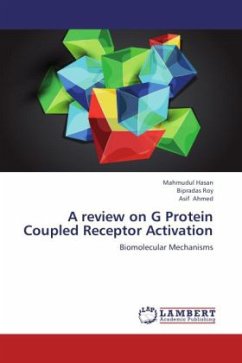The AMP-activated protein kinase (AMPK) is a trimeric enzyme that induces a cascade of events within cells in response to the ever changing energy charge of the cell and thus plays a central control role in maintaining energy homeostasis. AMPK appear to play roles in upregulation of energy-producing while downregulates energy-utilizing mechanisms thus support cell survival during energy deprivation. Any metabolic stress that inhibits ATP production, or that accelerates ATP consumption, will tend to increase the AMP:ATP ratio thus activate AMPK. Similar to nucleated cell survival, erythrocyte survival could be limited by suicidal erythrocyte death or eryptosis. Since a very little academic literature exists about eryptosis, this book provides the mechanism of action of AMPK in eryptosis and help understanding the overall eryptosis process in detail. Furthermore, the book explains the role and regulation of Na+-coupled transporters (focused in SGLT1, and EAAT3 & EAAT4) by AMPK. Thebook also introduces detail methods coupled this investigation and should be especially useful to professionals in cell biology, physiology and molecular biology, or others interested in this topic.
Bitte wählen Sie Ihr Anliegen aus.
Rechnungen
Retourenschein anfordern
Bestellstatus
Storno




![The Double [3+2] Photocycloaddition Reaction The Double [3+2] Photocycloaddition Reaction](https://bilder.buecher.de/produkte/39/39397/39397988m.jpg)



